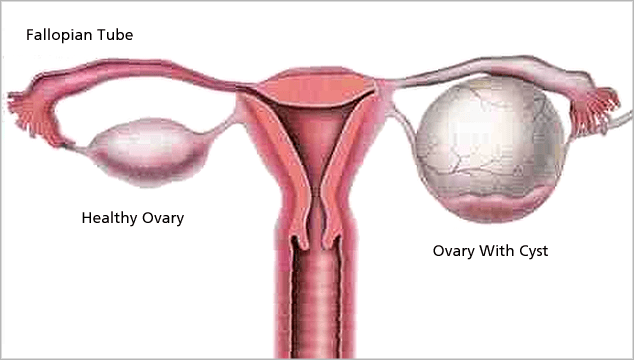If you know you have ovarian cysts and you are trying to get pregnant, you may be wondering whether this will affect your fertility or not. Claim Your 20 Free Pregnancy Tests – Click Here

You should know that, contrary to what you may think, there are little chances that your ovarian cysts are the cause of your infertility or will lead to infertility. These cysts are just sacs filled with fluid located on your ovary. Young women commonly have them because they are a result of the ovulation cycle. When the follicle in which your egg grows does not rupture when ovulation happens, it fills up with fluid and it gets bigger. These are called functional cysts and they usually disappear by themselves.

However, in rare cases women acquire other types of cysts that may cause them a few problems. A functional cyst may start bleeding and, turning into a hemorrhagic cyst and causing abdominal pain. Dermoid cysts also contain skin or hair fragments, so there are some cases when they need to be removed. Other cysts that may need to be surgically removed are called cystadenoma and formed from the cells covering the external part of your ovary; normally, they are not cancerous.

Ovarian cysts rarely present symptoms and they are usually discovered by ultrasound or routine pelvic exams. They normally shrink and disappear by themselves, so they are usually better left alone. However, some doctors may advise women to have surgery, which is not necessarily the best option in all cases.

If you have ovarian cysts, you should not be too concerned about how they will affect your fertility. The only case in which ovarian cysts may cause you problems is if they become twisted, cutting off their own blood supply. If immediate medical measures are not taken, this type of cyst can burst causing severe pain in your lower abdomen and requiring hospitalization. However, this happens very rarely.
Ovarian cysts may affect your fertility if the doctor decides to remove the entire ovary, severely compromising your ovary function. Open surgery is only needed when cysts are too solid or complex, or they are suspected to be cancerous. This would be a rare occurrence though, with the majority of ovarian cysts small, benign & going away on their own.

Normally, cysts are removed through laparoscopic surgery – which decompresses the cysts and makes them collapse, so that they can be removed through a small incision, allowing you to preserve your ovarian tissue and maintain normal ovarian function. Cysts are better to be treated before getting pregnant, but this does not imply you will have to have them surgically removed. Surgery is not good for your fertility, especially if the entire ovary is removed.

So, in the end, it is not the cysts that affect your fertility, but some desperate and unnecessary attempts to remove them. Take a cautious stance, and speak with your healthcare practitioner about the wisdom of letting them go away on their own, as a possibly better solution so as to minimize any adverse affects to your fertility.










Comments